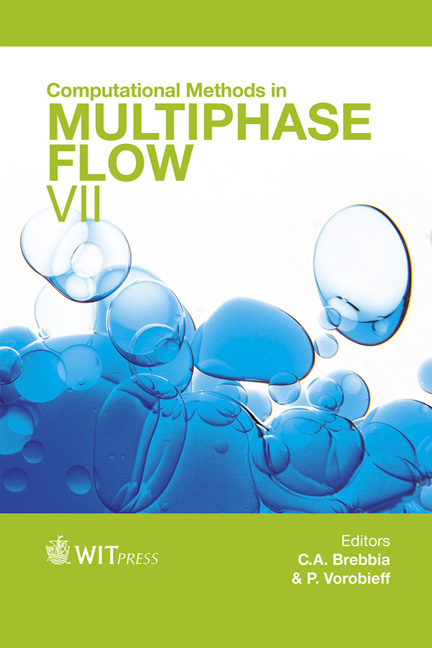Generating Work From Macro Cavities In Superheated Liquids
Price
Free (open access)
Transaction
Volume
79
Pages
12
Page Range
299 - 310
Published
2013
Size
853 kb
Paper DOI
10.2495/MPF130251
Copyright
WIT Press
Author(s)
P. A. F. Pereira, H. E. Schulz & G. Lombardi
Abstract
Considering liquid phases, it is well known that pure substances (or almost pure) can be maintained in the liquid phase for temperatures much higher than those of the liquid-vapor phase change. In these superheated cases, it is necessary to startup the phase change through some adequate mechanism, generating a very fast sequence of phenomena. In the present study, a confined liquid (water) was subjected to an adequate situation of pressure and temperature that allowed macro cavities to be formed, where sudden expansion generated a piston-like movement while the liquid dislocated. The geometrical arrangements of the equipment allow the \“use” of the reaction force, by stretching a spring. The aim of this study was to analyse the evolution of macro cavities generated by heating water under low pressure, describing the details of their dynamics and work production. First tests were performed using distilled water and a glass container (an adequately prepared mercury lamp) in which the generation and collapse of cavities with a diameter of about 10-1m were observed, and peak forces of 400 to 500N were measured. A one-dimensional governing equation was obtained from the usual conservation equations, and the results show that it considers the relevant aspects for the quantification of the observed movements. A second experimental system, that allows a better approximation to the one-dimension movement, is also presented. The results show that the sudden expansions can be used to generate work (although a small quantity), which may be of interest in situations where energy, like solar energy, can be freely obtained from the environment. Keywords: macro-scale cavities, bubble dynamics, ebullition, usable cavitation.
Keywords
Keywords: macro-scale cavities, bubble dynamics, ebullition, usable cavitation.





